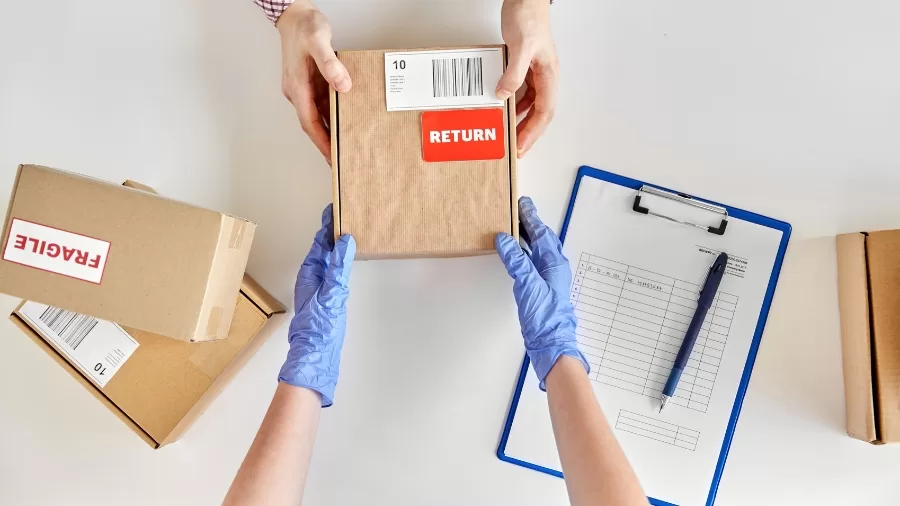Business
Optimizing Reverse Logistics: How Retailers Can Improve the Return Process

- Reverse logistics is rapidly growing with the rise of online shopping, with companies like Happy Returns offering efficient return options.
- Businesses are focusing on sustainable practices in reverse logistics, such as eco-friendly packaging and product reuse.
- Technology-driven solutions are streamlining the return process, reducing costs, and providing valuable data insights for merchants.
The increased popularity of online shopping has presented a growing challenge: managing returns. As e-commerce continues to rise, reverse logistics—the process of handling returns—has become a crucial aspect of merchants’ operations. Customers now expect hassle-free returns, putting pressure on businesses to implement return policies that simplify the process while boosting customer satisfaction. Companies specialising in reverse logistics, like Happy Returns, are stepping up to the challenge by offering innovative solutions to manage the surge in returns.
The Growth of Reverse Logistics: Meeting Customer Demands
Online returns have become a significant concern for retailers worldwide. Recent reports predict that reverse logistics will grow by up to 30% annually as e-commerce continues to expand. In the United States alone, returns are estimated to cost merchants up to $550 billion each year, highlighting the immense logistical expenses involved.
To tackle this challenge, reverse logistics companies are emerging as crucial players in the retail ecosystem. Companies such as Happy Returns are spearheading this trend by providing retailers with streamlined and efficient return solutions. As online shopping grows, customers now expect a seamless and hassle-free return process. To meet these evolving demands, businesses must implement flexible return policies that cater to a diverse range of customer needs.
Sustainable and Efficient Reverse Logistics Solutions
Reverse logistics is not only about convenience; it’s also undergoing a significant transformation towards sustainability. As consumers become more environmentally conscious, businesses are increasingly expected to adopt greener logistics processes. The environmental impact of packaging waste and carbon emissions from return shipping has prompted many companies to reassess their reverse logistics strategies.
Companies like EcoEnclose are helping businesses optimise their return processes with sustainable practices. They promote the use of eco-friendly packaging materials, provide clear return instructions, and encourage recycling of returned products. By embracing sustainable reverse logistics, companies not only enhance their brand reputation but also contribute to environmental preservation.
Streamlining the Return Process: Technology as a Key Enabler
A major advancement in reverse logistics is the integration of technology. Digital tools and automation are being leveraged to enhance the efficiency of returns. Companies like Happy Returns use technology to speed up and streamline the return process, allowing retailers to track and manage returns more effectively with features like return portals and automated systems.
Additionally, the data generated from reverse logistics activities provides valuable insights into customer preferences and return trends. By understanding the reasons behind returns, businesses can adjust their inventory management, product descriptions, and quality control processes. This data-driven approach not only reduces unnecessary returns but also lowers costs and improves the overall customer experience.
Green Reverse Logistics: A Win-Win for Business and the Environment
The growing focus on sustainability has led to the rise of green reverse logistics. This approach aims to minimise the environmental impact of returns by reusing or recycling returned items. Companies that adopt green reverse logistics practices can reduce waste, lower their carbon footprint, and offer eco-friendly solutions to customers.
Green reverse logistics is particularly beneficial for businesses with high return volumes, such as fashion retailers. Instead of discarding returned items, companies can organise, resell, or donate them to charity. This not only helps the environment but also creates new revenue opportunities for businesses.
Challenges and Opportunities for Retailers
While reverse logistics offers numerous benefits, retailers still face significant challenges. One of the biggest hurdles is minimising the logistics costs associated with returns. As the volume of returns increases, businesses must invest in return management systems and infrastructure, which can be expensive. However, the long-term advantages, such as improved operational efficiency and enhanced customer satisfaction, may outweigh these upfront costs.
Additionally, handling returns promptly and efficiently requires clear communication with customers. Retailers must offer transparent return policies, user-friendly websites, and strong customer support to ensure a seamless process. Collaborating with third-party reverse logistics providers can help businesses scale their return operations and boost efficiency without the need for heavy infrastructure investments.
The Future of Reverse Logistics
Looking to the future, reverse logistics will continue to evolve with technological advancements and a heightened focus on sustainability. Retailers will seek innovative ways to streamline return processes, reduce waste, and improve customer service. As businesses adopt smarter logistics systems, the reverse logistics sector will become an increasingly vital part of e-commerce, driving more efficient, cost-effective, and environmentally conscious operations.
Ultimately, reverse logistics is a crucial aspect of the modern retail landscape. Companies like Happy Returns and EcoEnclose are helping businesses navigate the complexities of online returns while promoting sustainability. As the industry advances, retailers must stay proactive by embracing innovative solutions, adopting eco-friendly practices, and leveraging technology to optimise their return processes. The path to success lies in offering a return process that is both customer-friendly and environmentally responsible, benefiting businesses, consumers, and the planet.

















































